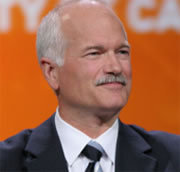Academic scholars of Buddhism (often referred to by the ugly term “Buddhologists”) today spend a great deal of time and energy pointing out ways that particular features of contemporary Western-influenced Buddhism are not present in earlier or classical tradition. At least four features appear strikingly new: Engaged Buddhism and its concern with politics; the relative absence of monks; the strong emphasis on meditation; and the rationalistic denial (or minimizing) of supernatural forces.
It’s pretty clear that most of these features were not there in most premodern Buddhist traditions. So, for example, Walpola Rahula’s What the Buddha Taught, while taken from the Pali suttas’ record of what the Buddha supposedly taught, turns out to be an extremely selective reading. Even if we take the suttas as an accurate record of what the Buddha taught (which they probably aren’t), if you read the whole collection you would get a very, very different picture of Buddhism than the one Rahula gives you: a world inhabited by gods and spirits, focused on monks, with limited emphasis on meditation and almost none on politics. What people like Rahula did is a genuine innovation.
This innovation departs enough from earlier tradition that one could call it a fourth y?na, a new Buddhist “vehicle” or tradition. Traditionally there are held to be three y?nas: the Theravāda of Sri Lanka and Southeast Asia which adheres to early, pre-Mahāyāna teachings; the Mahāyāna prevalent in East Asia; and Vajray?na, the tantra-influenced variant of Mahāyāna prevalent in Tibet. I like to call the new Buddhism Yavanayāna – after yavana, the Sanskrit and Pali term for Hellenistic Greeks, and by extension for Europeans. A four-y?na distinction makes for an easy mnemonic – to Theravāda in the south, Mahāyāna in the east and Vajray?na in the north, one adds Yavanayāna in the west.
Christopher Queen has recently been arguing that Engaged Buddhism itself constitutes a fourth y?na; but modernized Buddhist traditions share other characteristics as well, such as meditation and non-supernaturalism. Goenka vipassanā is not very political, but it is very different from the Theravāda of eighteenth-century Burma, and seems like it must be considered a part of fourth-y?na Buddhism. Queen has noted in conversation that Engaged Buddhism (and other forms of modernized Buddhism) are not just a Western invention; many of its most noted practitioners, including Rahula and Goenka and other luminaries like Thich Nhat Hanh, are Asians. This is certainly true, but it would also be hard to deny that their Buddhism owes a great deal to the influence of Western reformers (Christian, Theosophist and secular). Some take this point as a criticism: this so-called y?na is just a bastardization, a pandering to Western tastes. I strongly disagree with this criticism, but that’s a topic for my next post.

